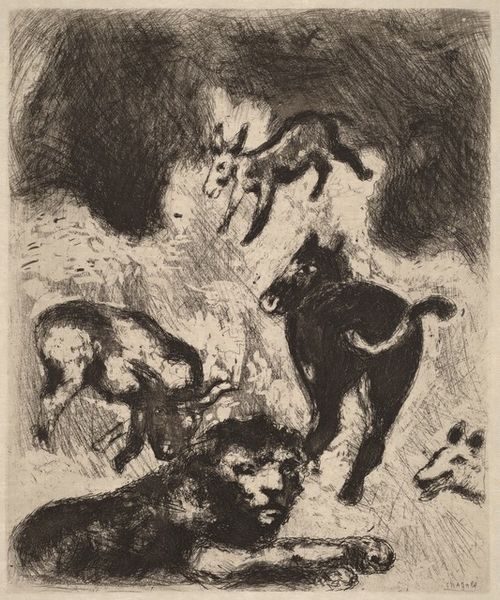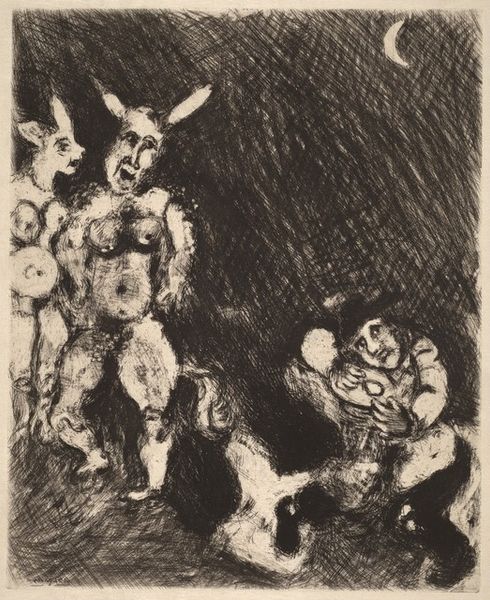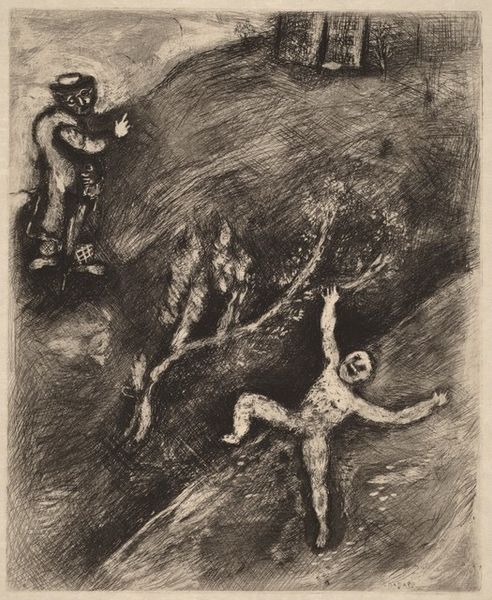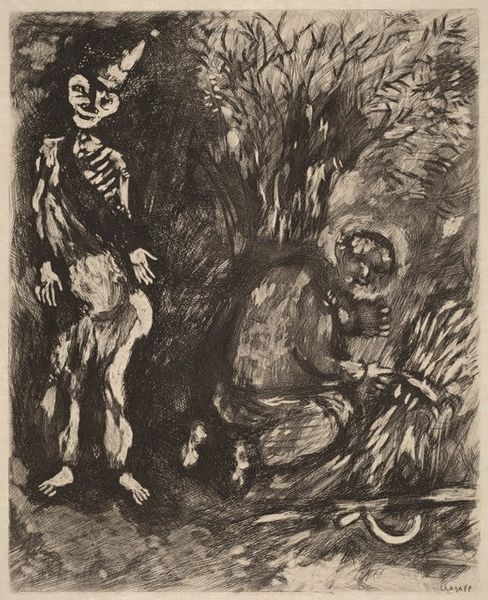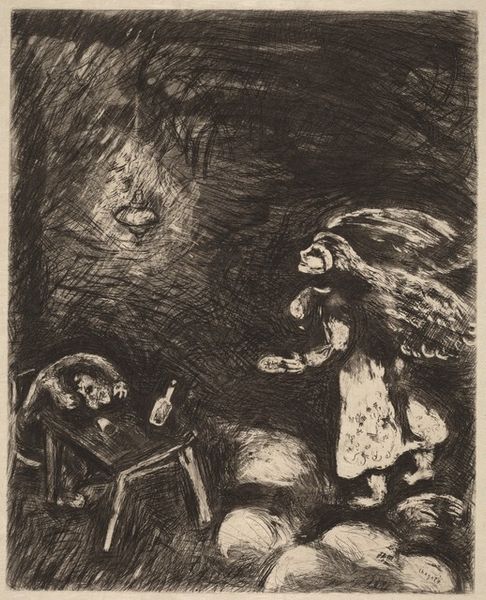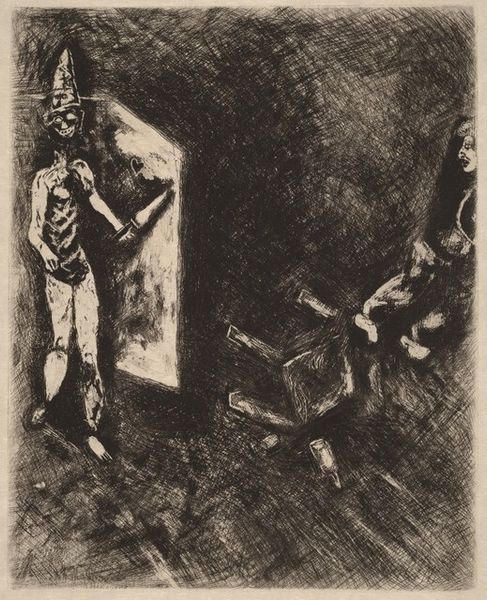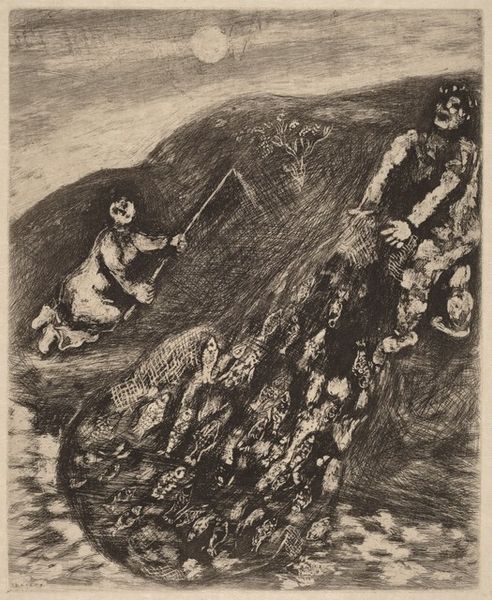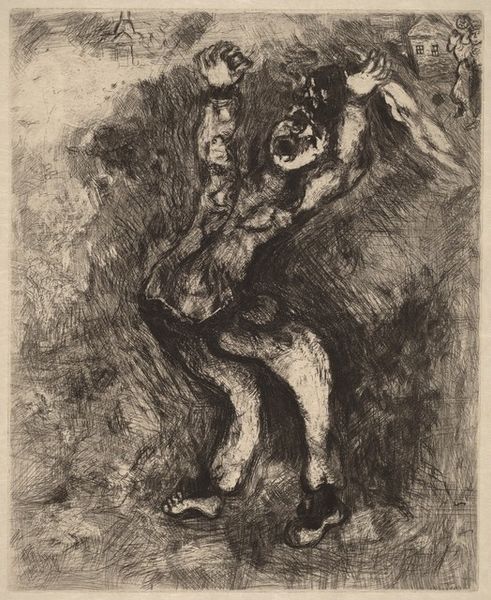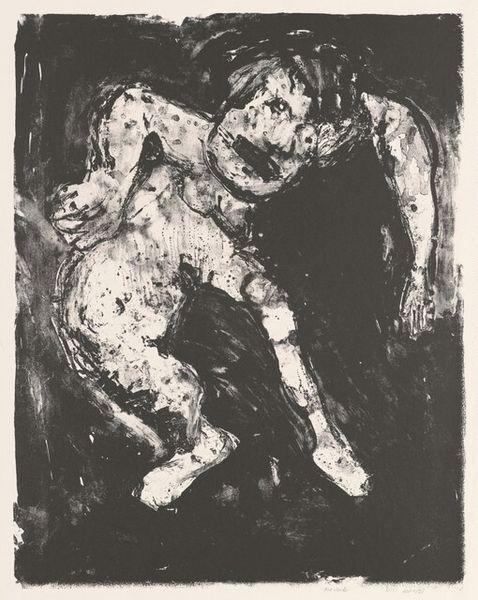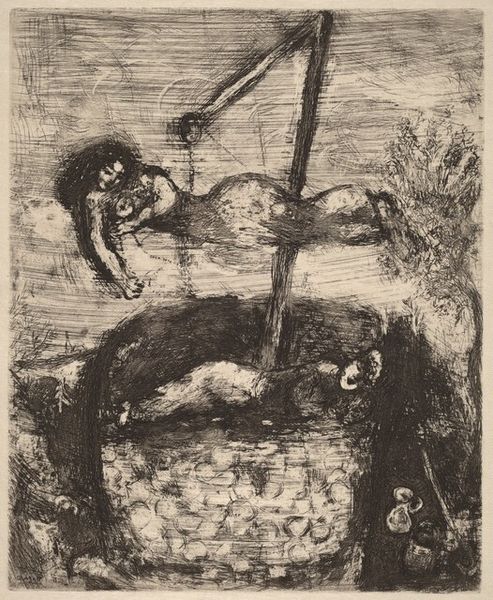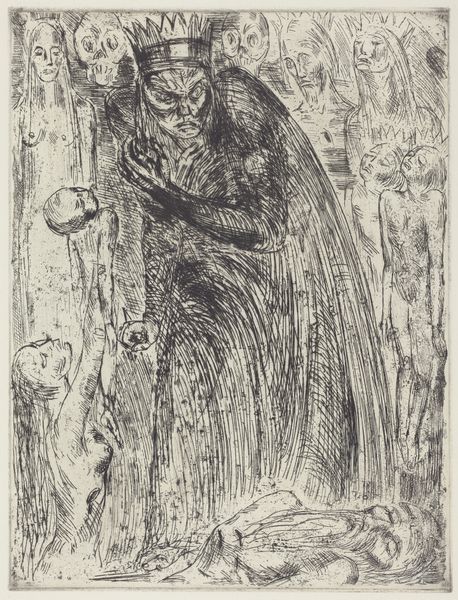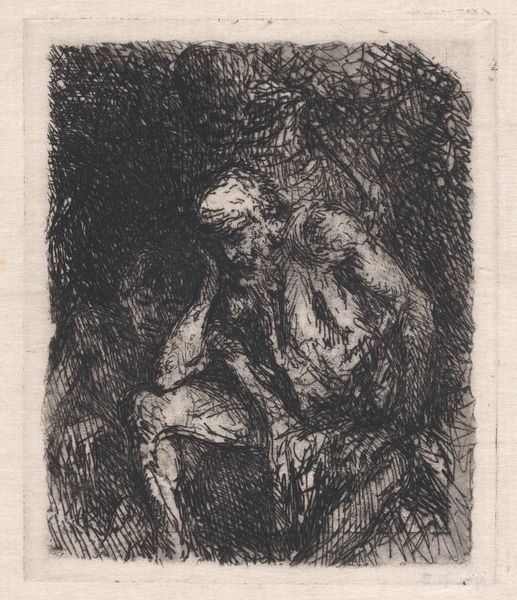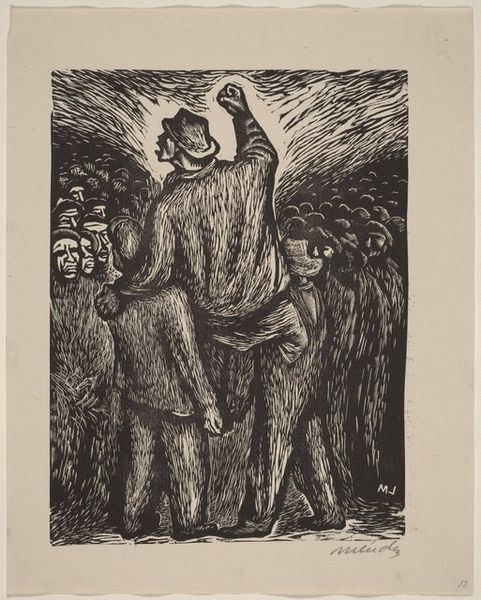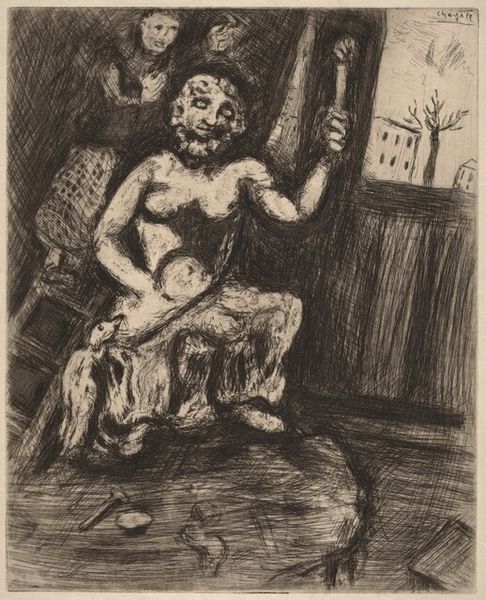
print, etching
# print
#
etching
#
landscape
#
figuration
#
surrealism
#
surrealism
Copyright: National Gallery of Art: CC0 1.0
Marc Chagall created this etching, "The Man and the Wooden Idol," exploring themes of cultural identity and tradition. Chagall, of Jewish-Belarusian origin, often infused his work with personal history and folklore. Here, the dark tonality and stark lines reflect the unease and tension between the man and the idol, invoking questions about faith and cultural assimilation. The wooden idol may represent established, perhaps outdated, beliefs. The man's posture, hunched and almost subservient, suggests the complex negotiations between individual autonomy and societal expectations. Chagall once said, "If I create from the heart, nearly everything works; if from the head, almost nothing." This piece resonates with that sentiment, conveying an emotional struggle with cultural inheritance. Ultimately, "The Man and the Wooden Idol" speaks to the universal human experience of grappling with tradition and forging one's own path. It reminds us of the intimate and often conflicting relationship between personal identity and cultural heritage.
Comments
No comments
Be the first to comment and join the conversation on the ultimate creative platform.
